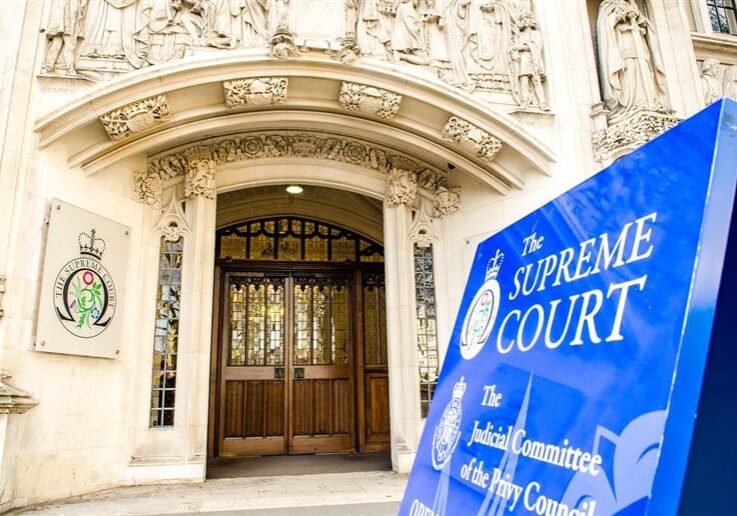End of 12.07% holiday pay?

Part Year Workers Explanation
Following a recent UK Supreme Court Ruling, employees or workers that only work part of the year may be entitled to the same holiday entitlement as someone who works all year as found in the recent Harpur Trust v Brazel case.
The decision is set to have wide reaching implications for businesses and organisations that engage casual workers and part year/term time workers.
The calculation of holiday pay can already be challenging for a lot of employers and with this recent decision by the Supreme Court you will need to look at how to calculate holiday pay fairly.
Harpur Trust v Brazel
Mrs Brazel, a music teacher at a school which was run by Harpur Trust, was engaged in a contract in which she was only required to work during school terms and the hours in which she worked could vary each week during term time depending on the need for her lessons. Brazel, as a ‘part-year’ worker remained employed by Harpur Trust from year to year, but was contractually only required to work at certain times during the year.
Mrs Brazel was provided with 5.6 weeks paid holiday each year which was to be taken and paid in three parts of 1.87 weeks during the schools holidays in the summer, Easter and Christmas. The pay for each holiday was based on her average weekly pay for the preceding twelve weeks she worked before each holiday period – also known as ‘the calendar week method’.
However, in September 2011 her holiday pay calculation was changed to the ‘percentage method’ meaning her total holiday entitlement and pay was based instead on how many hours she had worked in the preceding twelve weeks. The Trust calculated the total hours Mrs Brazel worked in the previous term and added 12.07% of those hours in respect of holiday.
As a result of these changes, Mrs Brazel raised a claim for underpayment of wages and whilst her claim was rejected by the employment tribunal, the Supreme Court considered these issues in November 2021, and judgment was given on 20 July 2022.
The Supreme Court decided using the 12.07% method meant that if Mrs Brazel worked fewer hours in a particular term, she would accrue less holiday, which would reduce her entitlement to below 5.6 weeks per year. This was wrong under the Working Time Regulations as every worker, including part-year workers, should receive at least 5.6 weeks’ paid holiday for each year they remain engaged on a permanent contract.
This is a lot of information, but so we can explain what this means properly, we wanted you to have the appropriate background knowledge and facts that have resulted in this change. To help further, we have compiled a few examples that may make this easier to understand.
Example one:
An exam invigilator is engaged by a school on a continuous contract (no end date) to work three weeks per year at 40 hours per week. She earns £600 per week. She is entitled to 5.6 weeks’ holiday per year. Pay for a week’s leave will be £600 (as all non-working weeks are ignored). She will be entitled to £3,360 holiday pay (5.6 x £600) which is more than she receives for the time she works.
Example two:
A casual worker who has an ‘umbrella’ contract starts work part way through the leave year and works for nine months before the contract is terminated. During this time, they carry out two four-week assignments (separated by several weeks).
Their holiday pay is calculated using the 12.07% method. If they work for 15 hours per week for four weeks during both assignments (120 hours) they will receive (approximately) 14.48 hours paid holiday (12.07% x 120) which is just under one week. This is paid at their usual rate of £15 per hour so they will receive £217.20.
The worker argues that their holiday should accrue in accordance with the Working Time Regulations at the rate of 1/12th of annual leave per month (regardless of hours worked) and that it should paid using the calendar week method. On this basis they accrue (approximately) 4.2 weeks holiday during their nine-month engagement (5.6 x 9/12ths) to be paid based on their average weekly pay (ignoring non-working weeks). This is £225 (15 hours x £15). This amounts to £945 holiday pay (£225 x 4.2). Any holiday which is not taken should be paid in lieu of the end of the contract.
How to determine holiday entitlement for staff on a continuous contract
If there is no end date on the contract, all workers/employees are entitled to 5.6 weeks (28 days) holiday unless they work fixed days each week when it can be pro-rated eg employee works 3 days every week, so the holiday entitlement is 5.6 x 3 = 16.8, rounded up to 17 days including bank holidays.
How to determine holiday pay?
Use the 52 week reference period; calculate the average of weekly earnings based on the previous 52 weeks worked omitting any weeks when no work was carried out.
Who does it affect?
This decision will affect employees or workers who are:
- Engaged on a continuous contract but only work part of the year eg term time only
- Have their holiday entitlement calculated based on hours worked using the 12.07% method
Action points
At HR:4UK we recommend the following actions as a result of the changes:
- Check the pay, holiday entitlement and holiday pay clauses in your contracts of employment.
- Check all employees individual contracts to ensure they have the correct holiday entitlement.
- Check that employees are being paid correctly when taking holiday, using the 52 week reference period
- If you have any casual workers HR4UK will be providing a new agreement to replace the zero hours agreement.
If you are not already a client and would like to discuss the options available to you please contact us.
If you have any more questions about part year workers and what this means for your business, do not hesitate to contact a member of our team today to discuss it more, email [email protected] or call 01455 444 222.
Angela Clay
A qualified employment law solicitor and our managing director, Angela has unparalleled legal expertise and decades of experience and knowledge to draw from. She’s a passionate speaker and writer that loves to keep employers updated with upcoming changes to legislation, and is a regular guest speaker on BBC Leicester Radio.




